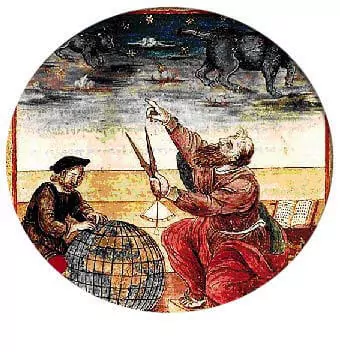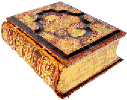
In somewhat summary fashion it has been shown how prognostication by astronomical means is possible, and that it can go no further than what happens in the ambient and the consequences to man from such causes-that is, it concerns the original endowments of faculties and activities of soul and body, their occasional diseases, their endurance for a long or a short time, and, besides, all external circumstances that have a directive and natural connection with the original gifts of nature, such as property and marriage in the case of the body and honour and dignities in that of the soul, and finally what befalls them from time to time. The remaining part of our project would be to inquire briefly as to its usefulness; first distinguishing how and with what end in view we shall take the meaning of the word usefulness. For if we look to the goods of the soul, what could be more conducive to well being, pleasure, and in general satisfaction than this kind of forecast, by which we gain full view of things human and divine? And if we look to bodily goods, such knowledge, better than anything else, would perceive what is fitting and expedient for the capabilities of each temperament. But if it does not aid in the acquisition of riches, fame, and the like, we shall be able to say the same of all philosophy, for it does not provide any of these things as far as its own powers are concerned. We should not, however, for that reason be justified in condemning either philosophy or this art, disregarding its greater advantages.
To a general examination it would appear that those who find fault with the uselessness of prognostication have no regard for the most important matters, but only for this-that foreknowledge of events that will happen in any case is superfluous; this, too, quite unreservedly and without due discrimination. For, in the first place. we should consider that even with events that will necessarily take place their unexpectedness is very apt to cause excessive panic and delirious joy. while foreknowledge accustoms and calms the soul by experience of distant events as though they were present, and prepares it to greet with calms and steadiness whatever comes. A second reason is that we should not believe that separate events attend mankind as the result of the heavenly cause as if they had been originally ordained for each person by some irrevocable divine command and destined – to take place by necessity without the possibility of any other cause whatever interfering. Rather is it true that the movement of the heavenly bodies, to be sure. is eternally performed in accordance with divine. Unchangeable destiny, while the change of earthly things is subject to a natural and mutable rate, and in drawing its first causes from above it is governed by chance and natural sequence. Moreover, some things happen to mankind through more general circumstances and not as the result of an individual’s own natural propensities-for example, when men perish in multitudes by conflagration or pestilence or cataclysms, through monstrous and inescapable changes in the ambient, for the lesser cause always yields to the greater and stronger; other occurrences, however, accord with the individual’s own natural temperament through miner and fortuitous antipathies of the ambient. For if these distinctions are thus made, it is dear that both in general and in particular whatever events depend upon a first cause, which is irresistible and more powerful than anything that opposes it, must by all means take place; on the contrary, of events that are not of this character, those which are provided with resistant forces are easily averted, while those that are not follow the primary natural causes, to be sure, but this is due to ignorance and not to the necessity of almighty power. One might observe this same thing happening in all events whatsoever that have natural causes. For even of stones, plants, and animals, and also of wounds, mishaps, and sicknesses, some are of such a nature as to act of necessity, others only if no opposing thing interferes. One should therefore believe that physical philosophers predict what is to befall men with foreknowledge of this character and do not approach their task under false impressions; for certain things, because their effective causes are numerous and powerful, are inevitable, but others for the opposite reason may be averted. Similarly those physicians who can recognize ailments know beforehand those which are always fatal and those which admit of aid. In the case of events that may be modified we must give heed to the astrologer, when, for example, he says that to such and such a temperament, with such and such a character of the ambient, if the fundamental proportions increase or decrease, such and such an affection will result. Similarly we must believe the physician, when he says that this sore will spread or cause putrefaction, and the miner, for instance, that the lodestone attracts iron: just as each of these, if left to itself through ignorance of the opposing forces, will inevitably develop as its original nature compels, but neither will the sore cause spreading or putrefaction if it receives preventive treatment, nor will the lodestone attract the iron if it is rubbed with garlic; and these very deterrent measures also have their resisting power naturally and by fate; so also in the other cases, if future happenings to men are not known, or if they are known and the remedies are not applied, they will by all means follow the course of primary nature; but if they are recognized ahead of time and remedies are provided, again quite in accord with nature and fate, they either do not occur at all or are rendered less severe. And in general, since such power is the same whether applied to things regarded universally or particularly, One would wonder why all believe in the efficacy of prediction in universal matters, and in its usefulness for guarding one’s interests (for most people admit that they have foreknowledge of the seasons, of the significance of the constellations, and of the phases of the moon, and take great forethought for safeguarding themselves, always contriving cooling agents against summer and the means of warmth against winter, and in general preparing their own natures with moderation as a goal; furthermore, to ensure the safety of the seasons and of their sailings they watch the significance of the fixed stars, and, for the beginning of breeding and sowing, the aspects of the moon’s light at its full, and no one ever condemns such practices either as impossible or useless); but, on the other hand, as regards particular matters and those depending upon the mixture of the other qualities-such as predictions of more or less, of cold or of heat, and of the individual temperament-some people believe neither that foreknowledge is still possible nor that precautions can be taken in most instances. And yet, since it is obvious that, if we happen to have cooled ourselves against heat in general, we shall suffer less from it, similar measures can prove effective against particular forces which increase this particular temperament to a disproportionate amount of heat. For the cause of this error is the difficulty and unfamiliarity of particular prognostication, a reason which in most other situations as well brings about disbelief. And since for the most part the resisting faculty is not coupled with the prognostic, because so perfect a disposition is rare, and since the force of nature takes its course without hindrance when the primary natures are concerned, an opinion has been produced that absolutely all future events are inevitable and unescapable.
But, I think, just as with prognostication, even if it be not entirely infallible, at least its possibilities have appeared worthy of the highest regard, so too in the case of defensive practice, even though it does not furnish a remedy for everything. its authority in some instances at least, however few or unimportant, should be welcomed and prized. And regarded as profitable in no ordinary sense.
Recognizing, apparently, that these things are so, those who have most advanced this faculty of the art, the Egyptians, have entirely united medicine with astronomical prediction. For they would never have devised certain means of averting or warding off or remedying the universal and particular conditions that come or are present by reason of the ambient, if they had had any idea that the future cannot be moved and changed. But as it is, they place the faculty of resisting by orderly natural means in second rank to the decrees of fate, and have yoked to the possibility of prognostication its useful and beneficial faculty, through what they call their iatromathematical systems (medical astrology), in order that by means of astronomy they may succeed in learning the qualities of the underlying temperatures, the events that will occur in the future because of the ambient, and their special causes, on the ground that without this knowledge any measures of aid ought for the most part to fail, because the same Ones are not fitted for all bodies or diseases; and, on the other band, by means of medicine, through their knowledge of what is properly sympathetic or antipathetic in each case, they proceed, as far as possible, to take precautionary measures against impending illness and to prescribe infallible treatment for existing disease.
Let this be, to this point, our summarily stated preliminary sketch. We shall now conduct our discussion after the manuel of an introduction, beginning with the character of each of the heavenly bodies with respect to its active power, in agreement with the physical observations attached to them by the ancients, and in the first place the powers of the planets, sun, and moon.
 AstroLibrary 🔎
AstroLibrary 🔎